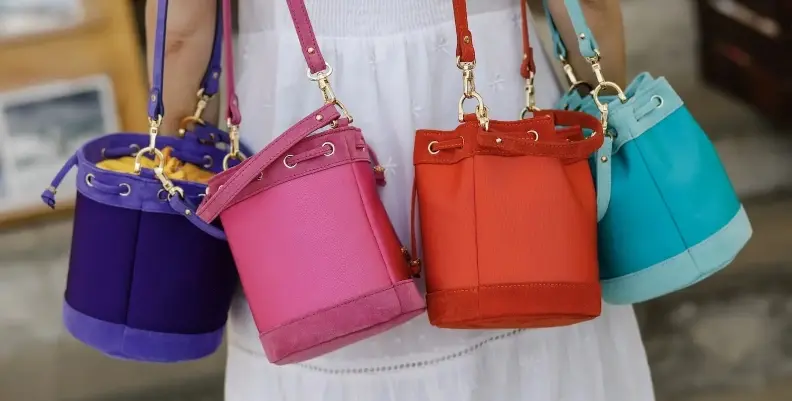Slow fashion startup Ad Hoc Atelier achieves fast growth with Klaviyo

45%
year-on-year growth
23%
revenue attributed to Klaviyo
21%
repeat purchase rate
‘Slow fashion’ used to be considered a niche concept, but it’s growing in popularity as more consumers become interested in sustainability. Unfortunately, small independent artisans often lack the digital know-how to market their products effectively, and that’s where Ad Hoc Atelier comes in.
The Italian marketplace provides a shop window for local makers of clothing, jewellery and accessories. It was founded in 2020 by four friends who were stuck living together during the lockdown and decided to use the time to turn their shared passion for Italian design into a business. The brand has been working with Klaviyo since 2021.
Learn how the artisan store uses storytelling to achieve 45% YOY growth
Challenge
People don’t buy made-to-order garments every day so Ad Hoc Atelier’s main priority is to keep its subscribers engaged. That way, once they’re ready to make a purchase, the store is top of mind.
Storytelling is very important to the brand, and its email newsletter features articles about fashion and sustainability, and profiles of the makers and their beautiful wares. The business wants to be able to tailor the frequency and content of the newsletter to keep subscribers interested. The goal is to deliver a more personal experience that aligns with the brand’s USP – it’s the opposite of a one-size-fits-all approach, on all fronts.
Our platform allows shoppers to customise products and create something unique. The customer experience should reflect that, and reinforce the fact that they are buying directly from an artisan, not from a big store.
Lorenzo Colucci, Co-founder, Ad Hoc Atelier
Solution
Ad Hoc Atelier switched from SendinBlue to Klaviyo in 2021 in order to benefit from Klaviyo’s dynamic content and custom segmentation functionality, neither of which SendinBlue could support.
Klaviyo’s customer data platform integrates seamlessly with Shopify, allowing Ad Hoc Atelier to collect Customer First Data™ that can be used to segment the audience according to their level of engagement. It can also use subscribers’ viewed products, past purchases, and gender to make every email highly personalised and relevant.
Strategy
By using Klaviyo, the brand has been able to reduce its spend on paid advertising and focus on owned marketing, using channels it controls completely.
The store varies the number of newsletters people receive, based on their previous interactions, and every email includes a dynamic block of suggested products that’s unique to each recipient. The store has learnt that people are creatures of habit who tend to buy similar items more than once, so it includes suggestions for popular items from the same category.
Handmade goods and custom orders can have a long lead time, so to manage customers’ expectations, a post-purchase flow sends an email 2, 7, 12, and 18 days after each sale, with an update on its status. Once an order has been fulfilled, that triggers another flow that’s spread over a couple of months. The aim is to continue the conversation with shoppers to build brand loyalty, and it’s already seeing a high percentage of repeat purchases.
Klaviyo’s flows allow us to do something really important that would be impossible to manage manually. They help us build a relationship with customers, automating a constant dialogue with our clients.
Matteo Todisco, Communications Manager, Ad Hoc Atelier